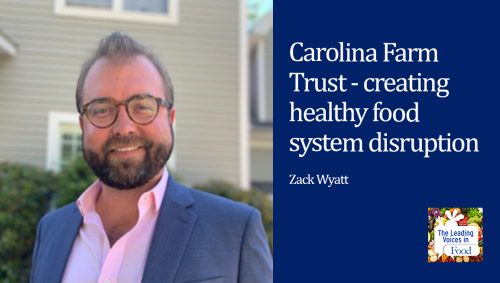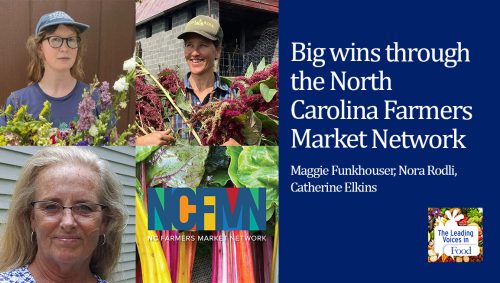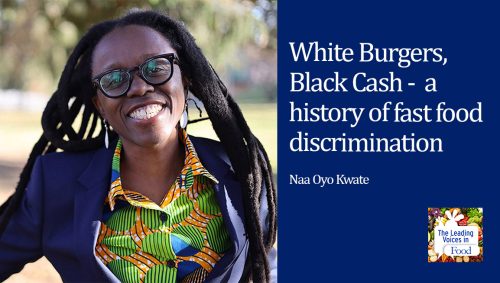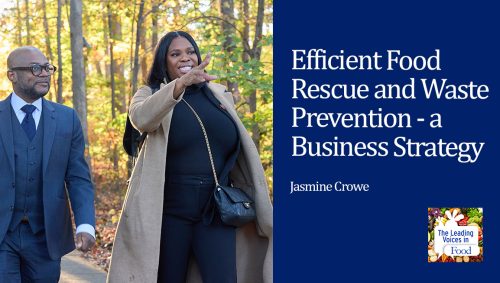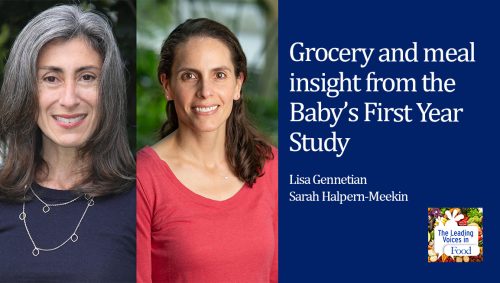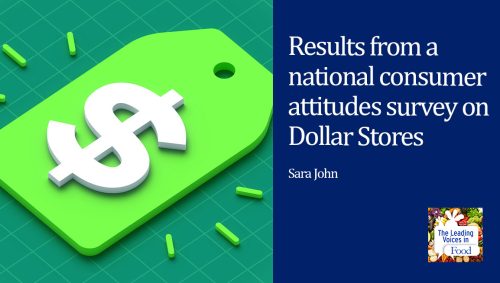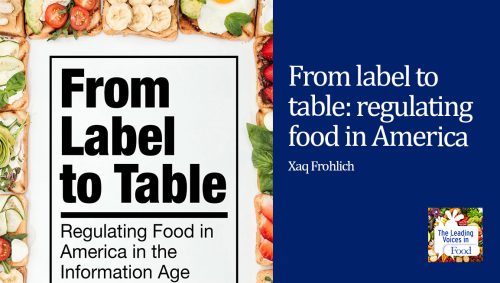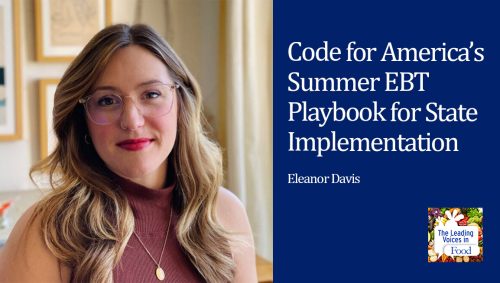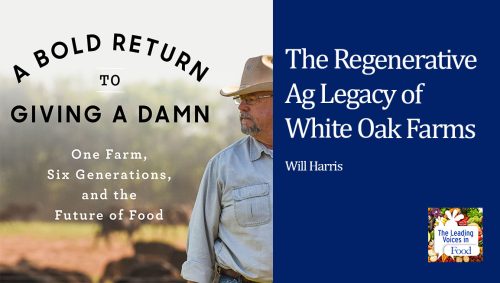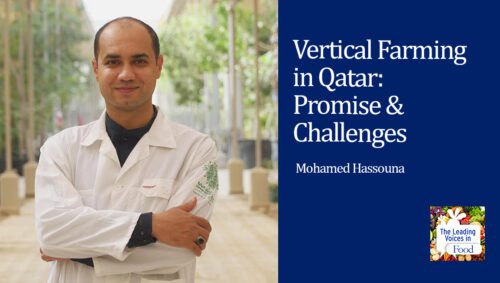The Leading Voices in Food
E157: Adam Zipkin on Transitioning to an Agricultural System that Benefits Everyone
Today, we’re going to explore industrial agriculture and what that means to farmers and ranchers, to farm workers, to corporations, and consumers. Our guest today, Adam Zipkin, serves as council to New Jersey Senator, Cory Booker. He advises Senator Booker on issues related to food policy, agriculture, and animal welfare. Booker has been deeply engaged in legislation such as the Farm System Reform Act, Black Farmers Act, and the Climate Stewardship Act.
Subscribe: Apple Podcasts | TuneIN | Google Podcasts | SoundCloud | PocketCasts | Radio Public
Tags: Agriculture & Tech | Community & Economic Development | Equity, Race & Food Justice | Food Insecurity | Food Policy | Regenerative Agriculture | Urban Agriculture |

Adam Zipkin currently serves as Counsel to United States Senator Cory Booker. In this role, Adam advises Senator Booker on issues related to food policy, agriculture and animal welfare. Before his employment in the Senate, Adam was Deputy Mayor for Economic Development for the City of Newark, New Jersey. Prior to working in City Hall, Adam operated a law office primarily devoted to providing pro bono legal services to Newark residents in need, with a focus on providing representation to low income tenants. In 2006, Adam received the “Pro Bono Attorney of the Year” Award from Essex County Legal Services, Volunteer Lawyers for Justice Program in recognition of his service and dedication to meeting the legal needs of indigent persons.
Interview Summary
Now, the work that you and your colleagues are doing, and of course, Senator Booker, is really important, groundbreaking work. So I’d like to dive in and talk about that. So first, could you tell us about the work that you and Senator Booker are doing – focused around the area of agriculture.
I was with Senator Booker when he was Mayor Booker in Newark, New Jersey. And when he was mayor, we saw up close how a lot of communities in Newark were food deserts. We did a lot at the city level to try to address that where we had communities where people just didn’t have access to healthy foods and to fresh fruits and vegetables. So we would try to attract new supermarkets and started growing a lot more produce in the city. But ultimately, we realized that the scale of the problem was just bigger than any one city could solve on its own.
Then, when we came to the Senate, Senator Booker and I traveled and met with farmers, and went to rural communities, not just in New Jersey, but around the country. We went to Duplin County, North Carolina. And there, the Senator saw just how these massive factory farms, large CAFOs, were really hurting the local communities – primarily low-income communities, communities of color – with air pollution, water pollution, and health impacts. As we started working on the 2018 Farm Bill, we traveled to Missouri, Kansas, Illinois, and met with farmers and ranchers there. What the Senator learned was that the same broken food system that was really hurting people in Newark was really a broken system nationally for all of us.
So Senator Booker started working on legislation to try to change the system. And he introduced the Climate Stewardship Act, which is focused on investing in farmers and ranchers as part of the solution to climate change; and using existing voluntary USDA conservation programs and targeting dollars to regenerative Ag and soil health practices where we can reduce emissions and increase carbon sequestration. He introduced the Justice for Black Farmers Act, which is a bill to comprehensively address the terrible history of discrimination by USDA against black farmers over the past century. Another really important bill that Senator Booker introduced was the Farm System Reform Act, which is a bill that would put a moratorium on new large factory farms and phase out large factory farms. It really comes up with sort of a blueprint to transition us from this current industrial model that is failing us on so many levels to a more regenerative system.
That work is impressive and ambitious in scope. I wish you the best of luck with it. It’s interesting to me that you happened to mention Duplin County, NC. So my colleagues and I at the World Food Policy Center did a tour of farms in eastern North Carolina several years back, and Duplin County was one of the places we went. And I just so happened to look up numbers for Duplin County. Now, this goes back several years, so I’m not sure how current they are. But if I remember, the annual production in that county – the counties in North Carolina aren’t all that big, by the way, we have 100 of them – but Duplin County’s annual production of hogs is 2 million hogs. And in addition to that, 5 million turkeys and 69 million chickens. And this is a single county. So the scope of the industrial agriculture, and of course, the consequences of it are really pretty impressive. So it’s interesting you happen to go to that county as well. Let me ask about a report that was published by a group called Farm Action. They published this in 2020. It was entitled “The Truth about Industrial Agriculture.” What was it that interested you about this report and how has it influenced your thinking and your work?
So Farm Action is one of the stakeholders that our office has worked with a lot, and we consider them to be a really important voice on these issues. The report that you mentioned, “The Truth about Industrial Agriculture,” is a report that really does a great job of going through all of the ways in which our industrial meat production system is harming all of us. It shows how it’s a system that is really hurting independent family farmers who are forced to try to compete with a system that externalizes all of its costs. We’re seeing independent family farmers driven into bankruptcy and forced to sell or be foreclosed on. We’re seeing how this current factory farm system hurts the environment through the air pollution, and water pollution. And how it’s really dangerous for public health, both in the impacts locally on neighbors with respiratory diseases like asthma, but also, the pandemic risks that we face from large factory farms and the way that the system is so harmful to workers. These were things that Senator Booker and I had learned about and were motivating us in bills like the Farm System Reform Act. But this report just does a great job of consolidating all that information and laying it out and also goes through and dispels a whole bunch of myths about the current system.
Can I ask you a question about your perception of public opinion? So Americans, for decades, have spoken, in a way. They wanted food available all the time in their supermarkets in an abundant amount at the lowest possible cost. And the way to deliver on that, the hope that Americans had, was to have industrial agriculture. So do you think Americans are thinking differently about it now? Are you sensing a shift in public opinion or awareness that might be leading the general public along the lines of what you’re talking?
I do think there’s starting to be a shift. I think there’s been some polling in the last few years that show that the public does want these factory farms to be better regulated. And, there is growing support for putting a moratorium on new, large factory farms. I think that part of what’s really important about reports like this and about bills like the Farm System Reform Act, and having advocates and Senator Booker and others out there talking about these issues and raising awareness about these issues, is I think that, the more that the public learns, the more public opinion will be supportive of bills like the Farm System Reform Act. Because I think that, currently, the industry tries to keep the system as opaque as possible, right? They try to pass these Ag gag laws at a state level that will punish people if they just try to take pictures or show the public what the conditions are like for animals and workers inside of these factory farms. So I think that public opinion is, I think, shifting and I think that, collectively, we’re working to try to accelerate that.
I’m a bit curious about your impression to see if it was consistent with mine. When we were doing the tours of farms that I mentioned, we visited some industrial-sized agriculture operations and the CAFO units and things. And it was our impression in speaking to the farmers that they weren’t making a lot of money from this, that the big companies were, the big companies that are referred to as integrators, but the farmers weren’t. And they looked like they were having tremendous risks because they bore most of the risks the companies didn’t and their profit margins were very low and they had to work extremely hard under difficult circumstances. And so I think that, if there is any perception among the public, that it’s the farmers themselves who work in these places that are making a lot of money. That didn’t seem to be consistent with what we were doing. But I was wondering what your impressions were?
I think that’s exactly right, Kelly. We’ve met with contract farmers out in the field. We’ve also had contract farmers come to meet with us in Washington. And the first thing that struck us was how scared they were to even be talking to us because they were telling us that if the big integrators, if these big companies that they were contracting with, if they even found out that they were talking to us, that they could get punished by them. Like you said, a lot of these contract growers, if they were just having to live on the farm income, they would be at or below the poverty line, right? So they’re forced to have family income from off the farm just to keep their heads above water. And a lot of them, what we heard from them, wished they had never gone down this road, where they were forced to invest hundreds of thousands of dollars or millions of dollars to build these barns and these manure lagoons and these systems. And now, they’ve taken on all this debt and they feel like they’re trapped and they just can’t get out. So one of the things that we do in the Farm System Reform Act, in addition to putting the moratorium on new CAFOs, is to provide $10 billion a year for 10 years to give voluntary buyouts to farmers to contract growers that want to transition out of this industrial model to a more regenerative model. Whether it’s using their barns to grow vegetables or mushrooms or to do pasture-based livestock or other types of regenerative agriculture to just help them get out.
Oh, that’s impressive. It’s really nice that you’re sensitive to the needs of the people that are working so hard. So back to the report that we were referring to, how do you hope that government agencies and elected officials will use information?
I think it’s a really important report for Senate offices and House offices to have at their fingertips and to be able to really learn about the system. Because other than the senators or the members of the House of Representatives who are actually on the agriculture committees and focus on these issues day to day, there are a lot of members of Congress, just like there’s a lot of members of the public, that have no idea really, of what is going on in the current system. They’ve heard a lot of the industry talking points because there are well-funded campaigns to get their myths out there. There are also a lot of the dollars spent on lobbying by these big, consolidated, multinational companies. So I think that this report really can help raise awareness amongst members of Congress, both in D.C. and at the state level as well, where we’ve seen some bills similar to the Farm System Reform Act introduced in various states. And, I think that just having all this consolidated into one report and just laying out how, really, the current system benefits these big companies and their shareholders and really no one else. Sort of rural communities, the environment, animals, workers, independent farmers, all really are being hurt by this system, and having the report and having the sort of myths and the truths about some of the beliefs, I just think it could be really helpful. Because we need to add cosponsors to these bills and build momentum.
I think in addition to what you were saying, and those are all really important points, that the average consumer going to the store to buy chicken, let’s say, may not be thinking about the welfare of people who live in rural areas or the environmental damage done by some of these operations. But in fact, everybody does get affected by this, by things like antibiotic resistance and overall damage to climate, and there are just so many things that ripple through our world that really nobody’s unaffected by it, are they?
That’s exactly right. I think that the report really, by focusing on all of the negative, externalities from these factory farms, that these big meat-packing companies, they don’t absorb those costs, right? Instead those costs are being paid, whether it’s by our healthcare system, or by the local communities, or the damage to the environment, through the water pollution where people’s local streams and creeks are polluted and their Wells where their families have been drinking water from these wells for generations. And now, they’ve been poisoned. So all those are costs that don’t appear when you’re just paying the price at the supermarket, but that all of us are paying. I think the report does a great job of laying that out.
So if the kind of policies you’re talking about, and let’s say other related policies, actually get enacted, what does a transition look like as we change from industrial to other forms of agriculture?
Look, this system has been built over many decades and is massive in scale. And so it’s not going to change overnight, which is part of why, in the Farm System Reform Act, we put in an immediate moratorium on new large factory farms but we phase them out between now and 2040, right. We recognize it’s going to be a transition period that’s going to take time. But I think the voluntary payments I mentioned, where we’re helping to financially assist the farmers to transition to this new system, I think creating a system where we are paying for the types of practices that are beneficial from an environmental perspective and a climate change perspective, sort of transitioning to where the workplace is, right. Right now, these meat-packing workers are exposed to terrible working conditions. I mean, COVID-19 sort of tore the lid off of this system in terms of, what we don’t usually get to see, the public got a view of these meat-packing plants and the conditions and how they became COVID-19 hotbeds and workers were getting sick and dying and creating COVID hotspots in their local communities. And so I think that the transition is where we start to create a system that, rather than benefiting just these big corporations, is benefiting rural communities, independent farmers, workers, and just getting started doing that.
So what is success?
I think success looks like starting to align our public subsidies with the type of food system that we want to create. Because one thing we haven’t even talked about is the ultimate impact of our current system on the people that are eating the food, right. In our country, right now, we’re seeing an explosion of diet-related diseases, type 2 diabetes, obesity, heart disease, certain types of cancer, all preventable diseases. That’s sort of the end result from this system. And so I think that success will be where, right now, our dietary guidelines say we should be eating 50% or more of our diet should be fruits and vegetables, but less than 2% of our federal Ag subsidies go to fruits and vegetables. So I think aligning our public investments with the outcomes that we want to see. And then, ultimately, success is a system where rather than being part of the climate change problem, our food system is part of the solution by absorbing more carbon than it is generating. And a system that treats workers fairly and treats animals more humanely and has positive economic and environmental impacts on the rural communities. I think transitioning to that, ultimately, is success.
I just finished a book called “The Poison Squad,” and it is a book about how really broken our food system was at the turn of the century, in the 1900s. And how there was just a decades-long fight by policy makers and the public and advocates to change the system. And they were successful over time. I think it gave me hope that collectively we can now fight that same fight and hopefully have a system that ultimately reflects our values.

